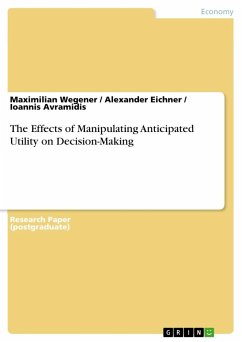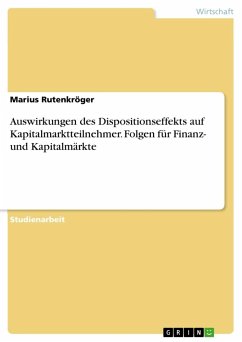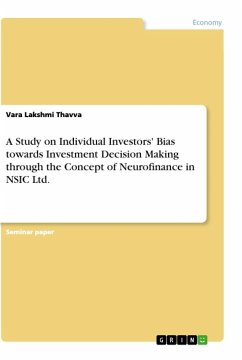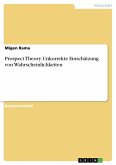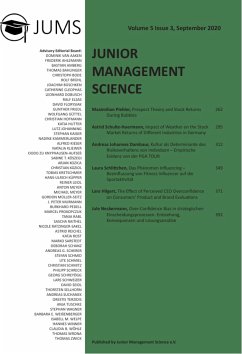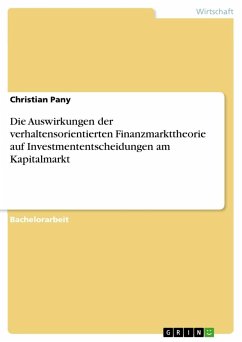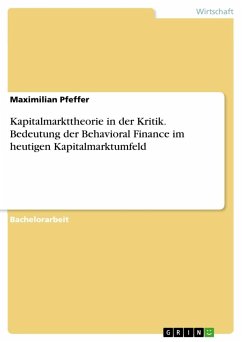Research Paper (postgraduate) from the year 2014 in the subject Business economics - General, grade: 7, Maastricht University, language: English, abstract: Our paper looks at whether there is a difference in perception of utility with respect to our three decision settings- a) individual decision maker (the control group), b) decision maker with two advisors and c) group with three decision makers. To find ways how to de-bias decision-making, we specifically look at expected versus experienced utility between and within these groups. Our results show that there is not only a difference in utility perception with respect to the number and role of people involved with the decision but also that if sunk costs are involved the positive utility (joy) is stronger than negative utility (regret). Supported by significant results from our research we offer solutions to mitigate two of the four causes of the disposition effect discussed by Kahneman and Statman (1985): 1. Regret Aversion and 2. Prospect theory. The group decision part of our experiment shows a significant mitigation of regret aversion. We therefore propose a set of managerial implications. By forcing our participants to invest, we provoke the closing of a mental account rendering the investment a sunk cost for the investor. The resulting gain in utility is then not subject to the effects of prospect theory.

